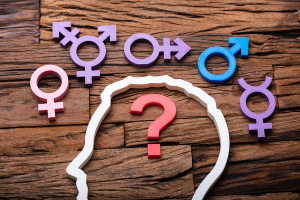Fossil fuels help India overcome air pollution illnesses, deaths
This month, the Indian government announced its annual budget, an event that interests 1.3 billion people. The budget once again makes it clear that the government is pro-fossil fuels. India will continue making historic investments in the natural gas sector and prioritizing key measures to strengthen domestic gas supply for households.
What many in the developed world do not know is that firewood used for household cooking is India’s biggest cause of indoor air pollution and associated deaths.

In India, mortality and morbidity from household cooking have been a major public health issue. Only in the last three decades have morbidity numbers came down after millions of households transitioned from firewood to liquefied petroleum gas (LPG). Still, many households are using animal dung or wood to cook food.
Assessment of the health and economic impact of air pollution in India indicates that “Indoor, or household, air pollution caused 64 per cent fewer deaths in the last two decades (1990-2019).”
LPG is known as a clean form of cooking fuel globally. Unlike the mainstream media’s portrayal of fossil fuels, the Indian government recognized fossil fuels for what they are: life savers!
In 2016, India announced the “Ujjwala scheme,” with the primary objective to create smoke-free rural India to benefit 80 million low-income families, especially women living below poverty line (BPL), by providing concessional LPG connections to the entire nation.
As per the government, the project aims to “increase usage of LPG and help in reducing health disorders, air pollution and deforestation” and prevent health hazards among millions of rural Indians by increasing the use of fossil fuel.
Yes, you read that right! Fossil fuel helps prevent health hazards among millions of households in India alone.
Helping people transition from wood-based stoves to gas stoves is a major international project. All major institutions like UNDP, World Bank, Asian Development Bank, and others have invested heavily in making this transition a reality in India, Asia, and Africa.
In 2020, the Indian government provided much-needed support to poor households by distributing over 140 million free LPG cylinders. “Ujjwala scheme being expanded to cover over 1 crore more families will ensure India will have 100% blue fame coverage of all willing household access to clean cooking fuel, up from 55% households with access in 2014. This is a phenomenal story of energy access,” said Debasish Mishra, from Deloitte India.
India’s 2021 budget emphasized expanding the City Gas Distribution (CGD) network. Unlike in the United States, the majority of Indian households receive gas through refillable cylinders, not pipelines. Indian cities are slowly beginning to install gas pipelines for households but are far from reaching all.
Measures have also been introduced to streamline the gas trade. The government said it will commission an independent gas transmission system operator to facilitate and encourage transparent buying and selling of gas.
It could not be stated any clearer. Gas — a fossil fuel — is literally the difference between good health and sickness in millions of Indian households. It is also affordable and abundant.
Yet, leaders in countries like the United States vilify it. Even worse, the current Biden administration has declared war on all fossil fuels. A recent Biden executive order actively seeks to “promote ending international financing of carbon-intensive fossil-fuel based energy.”
If the executive order and numerous other policies that are part of American President Joe Biden’s Clean Energy Plan prevail, they will reverse or stall hard-fought efforts to help billions of individuals transition from harmful cooking methods to gas stoves.
The positive news is that countries like India have stayed clear of this anti-fossil political drama. They recognize the importance of fossil fuel for alleviating poverty, improving health, and boosting life expectancy.
Experts who researched on air pollution deaths conclude that “The full realisation of the social, economic, and health benefits of household air pollution reduction can be achieved by overcoming the continuing challenges of limited translation of initial liquefied petroleum gas adoption to sustained adoption and limited abandonment of traditional fuels.”
In other words, a limited transition from wood to gas will not be sufficient to help people overcome air pollution and its impact on their social, economic, and health aspects. Instead, the experts call for “sustained adoption,” not compromising the constant increase in LPG use.
India has made significant progress in tackling air pollution deaths so far, thanks to fossil fuels. But the future is uncertain. With Biden’s policies likely to cause a disruption to the global fossil fuel market, especially oil and gas, it will be interesting to see how developing countries respond to the challenge.
Biden’s, or anyone’s, policies must be condemned if they interfere with developing countries’ access to fossil fuels.
Vijay Jayaraj (M.Sc., Environmental Science, University of East Anglia, England), is a Research Contributor for the Cornwall Alliance for the Stewardship of Creation.



























